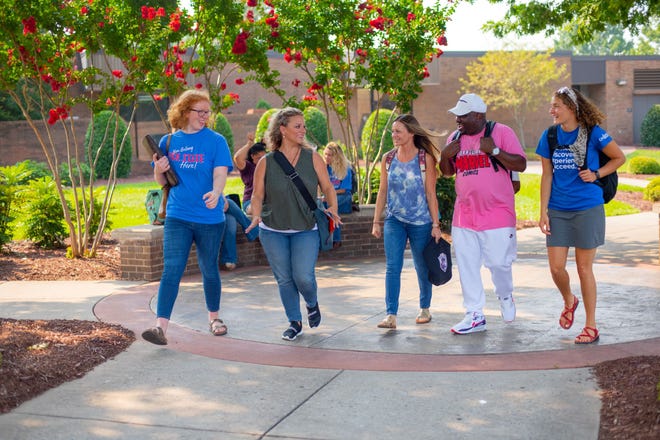I am a community college graduate, educated and successful

Dennis G. Hall
- Dennis G. Hall was formerly Vice President for Research at Vanderbilt University.
It’s that time of year again, when college students head to campus for the start of the new semester. Some are first-time students. I remember sending each child off to first grade when it was their turn.
Those were bittersweet moments. My wife and I were happy they got into college, but sad to be home without them.
My own admission to college a few years ago was quite different. I was a first generation college student.
My mother only attended high school for one year, and my father never attended high school. The only way for me to move forward financially was to live at home with my parents for her two years while attending the local community college, now known as Southwestern Illinois College.
I didn’t really have what anyone would consider a career path.My whole plan was to start college and then graduate.
Hear more from Tennessee: Get our weekly opinion newsletter for insightful and thought-provoking columns.
Community Colleges Can Be Assets
Community colleges were an integral part of that plan. The community college business has a long history. Like several other states at the time, my home state of Illinois was a place where people seeking vocational training and, like me, hoping to continue their education at his four-year institution. For both, I was serious about community college.

Illinois is home to the oldest continuously operating community college in the United States, Joliet Junior College near Chicago, founded in 1901.
While enrolled full-time, I worked part-time at a local business during the academic year and full-time during the summer to save enough money to enroll in a four-year college through a combination of loans and scholarships. I transferred to
more:Nashville State Community College creates an environment in which students can excel.opinion
My experience was not unusual. Many of my high school classmates who attended college went straight to the four-year campus, but a significant number chose the community college route.
Today, millions of students are enrolled in over 1,000 community colleges nationwide. Tennessee has 13 of them, overseen by the Tennessee Board of Trustees, including our own Nashville State Community College.
Working 25 hours a week and going to college full time while studying, doing homework and maintaining a social life was at times hectic but manageable. To be honest, I look back on these two years with nostalgia.

It went well. The University of Illinois at Urbana, which he wanted to transfer to, took courses that matched those required at his University of Champaign (UIUC). The requirements were detailed in his UIUC catalog, so planning was easy.
All my courses have been successfully transferred to UIUC with no loss of credit. By the time my parents sent me off to college, I had taken her two years of community college courses in preparation for the next step.
Hear the voices of black people in Tennessee:Get our weekly newsletter with powerful, critical thinking columns.
Community colleges can be gateways to career paths

Two years later, I graduated from UIUC with a BS in Physics. From there, I went on to graduate school and continued my studies.
As reported in this newspaper and elsewhere, community college enrollment is declining both locally and nationally. The pandemic may have been a factor.
Rather than delving into possible reasons for that decline, my purpose here is to offer encouragement. There are millions of others.
A community college is a community that provides practical opportunities for students who wish to attend college when personal circumstances make it difficult or impossible to attend a four-year boarding college immediately after high school. is an asset of Financial assistance, such as the Tennessee Promise Program, is often available.
Community colleges are accessible and a successful starting point for your education and career. They provide what many of us need most: a way to get started.
Dennis G. Hall was Vice President for Research, Graduate School Dean, Professor of Physics, and Professor of Electrical Engineering at Vanderbilt University. He retired from Vanderbilt University at the end of 2015 and is now Dean and Professor Emeritus.












